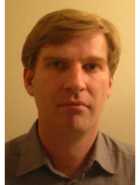
Keynote speakers
Tutorials
Workshops
ACM style files
Currency converter
Weather report
Guidelines to obtain VISA
Travel information
Official airlines


Keynote Speakers
The Semantic Web 10th Year Update
The talk will
be based on the fact that the Scientific American article by Tim
Berners-Lee, Ora Lassila and James Hendler was published on May 21,
2001. The WIMS'11 conference is an appropriate event to reflect on the
10 years - successes and misses.
 |
James
Hendler is
Tetherless World Professor
of Computer and Cognitive Science, and the Assistant Dean for
Information Technology, at Rennselaer. He also serves as the
Associate Director of the Web Science Research Initiative headquartered
at MIT and is a visiting Professor at the Institute of Creative
Technology at DeMontfort University in Leicester, UK.
|
| Hendler has authored about 200 technical papers in the areas of artificial intelligence, Semantic Web, agent-based computing and high performance processing. One of the inventors of the "Semantic Web," Hendler was the recipient of a 1995 Fulbright Foundation Fellowship and is a Fellow of the American Association for Artificial Intelligence and the British Computer Society. He is the Editor-in-Chief emeritus of IEEE Intelligent Systems and is the first computer scientist to serve on the Board of Reviewing Editors for Science. | |
Open Social Learning Communities
Universities have responded to this need with Open Education Resources—thousands of free, high quality courses, developed by hundreds of faculty, used by millions worldwide. Unfortunately, online courseware does not offer a supporting learning experience or the engagement needed to keep students motivated. Students read less when using e-textbooks; video lectures are boring; and retention and course completion rates are low.
Therein lies the core problem: How to engage a generation of learners who live on the Internet yet tune out of school, who seek interaction on Facebook yet find none on iTunes U, who need community yet are only offered content. We propose a new approach to this problem: open social learning communities anchored with open content, providing an interactive online study group experience akin to sitting with study buddies on a world-wide campus quad.
This solution is enabled by state-of-the-art web technologies: really real-time collaboration technologies for a highly interactive experience; intelligent recommender systems to help learners connect with relevant content and other learners; mining and analytics to assess learner outcomes; and reputation techniques to establish social capital. We will discuss these technologies and how they can be combined to address the problem of education in a manner that is highly scalable yet interactive and engaging.
This talk represents joint work with Preetha Ram (Emory University), Hua Ai (Georgia Tech), Chris Sprague (OpenStudy), and Saurav Sahay (Georgia Tech).
 |
Ashwin
Ram is
Director
of
the Cognitive Computing Lab and Associate Professor in the
College of Computing at Georgia Tech, and an Adjunct Professor in
Psychology at Georgia Tech and in MathCS at Emory University. He
received his PhD from Yale University in 1989, his MS from University
of Illinois in 1984, and his BTech from IIT Delhi in 1982. |
| He has published 2 books and over 100 scientific articles in international forums. He is a founder of Enkia Corporation which develops AI software for social media applications, and OpenStudy.com which is an online social learning network for students and faculty. | |
Many Faces of Text Processing
 |
Marko Grobelnik is an expert in analysis of large amounts of complex data with the purpose to extract useful knowledge. In particular, the areas of expertise comprise: Data Mining, Text Mining, Information Extraction, Link Analysis, and Data Visualization as well as more integrative areas such as Semantic Web, Knowledge Management and Artificial Intelligence. |
| Apart from research on theoretical aspects of unconventional data analysis techniques, he has valuable experience in the field of practical applications and development of business solutions based on the innovative technologies. Marko was employed as a researcher first, at the Computer Science Department at University of Ljubljana and later at the Department of Knowledge Technologies at J. Stefan Institute, Ljubljana , Slovenia . His main achievements are from the field of Text-Mining, having a leading role at research and development projects funded by European Commission, having projects with industries including Slovenian publishing house, Slovenian National and University Library and companies such as Microsoft Research. He has published papers in refereed conferences and journals, served in program committee of international conferences and organized a series of international events in the area of Text Mining, Link Analysis and Data Mining . | |
Making Things Findable
 |
Peter
Mika is
a
researcher
and
data architect at
Yahoo!
Research in Barcelona, working on the applications of semantic
technology to Web search. His interdisciplinary work in social networks
and the Semantic Web earned him a Best Paper Award at the 2005
International Semantic Web Conference and a First Prize at the 2004
Semantic Web Challenge. |
| From 2006 to 2009, he has been a co-chair of the Semantic Web Challenge. Mika is the youngest member elected to the editorial board of the Journal of Web Semantics. He is the author of the book 'Social Networks and the Semantic Web' (Springer, 2007). In 2008 he has been selected as one of "AI's Ten to Watch" by the editorial board of the IEEE Intelligent Systems journal. | |
Creating Knowledge Out of Interlinked Data
Over the past 4
years, the semantic web activity has gained momentum with the
widespread publishing of structured data as RDF. The Linked Data
paradigm has therefore evolved from a practical research idea into a
very promising candidate for addressing one of the biggest challenges
in the area of the Semantic Web vision: the exploitation of the Web as
a platform for data and information integration.
To translate this initial success into a world-scale reality, a number
of research challenges need to be addressed: the performance gap
between relational and RDF data management has to be closed, coherence
and quality of data published on the Web have to be improved,
provenance and trust on the Linked Data Web must be established and
generally the entrance barrier for data publishers and users has to be
lowered. This talk will discuss approaches for tackling these
challenges and their integration into a mutual refinement cycle - the
"linked data washing machine".
 |
Sören Auer leads the research group Agile Knowledge Engineering and Semantic Web (AKSW) at Universität Leipzig. His research interests include semantic data web technologies, knowledge representation, engineering & management, as well as databases and information systems. He is author of over 50 peer-reviewed scientific publications. |
| Sören is leading the large-scale integrated EU-FP7-ICT research project "LOD2 - Creating Knowledge out of Interlinked Data". Sören is founder (respectively co-founder) of several high-impact research and community projects such as the Wikipedia semantification project DBpedia or the social Semantic Web toolkit OntoWiki. He is co-organiser of several workshops, programme chair of I-Semantics 2008, OKCON 2010, ESWC 2010 and ICWE 2011, area editor of the Semantic Web Journal, serves as an expert for industry, the European Commission, the W3C and is member of the advisory board of the Open Knowledge Foundation. | |
Proceedings will be published by
International Journal of Metadata, Semantics and Ontologies
International Journal of Web Services Practices
International Journal of Information Retrieval Research
International Journal of Computer Science & Applications
Some selected extended papers from WIMS'11 will be considered for Elsevier (Morgan Kaufmann) book [pending approval]






